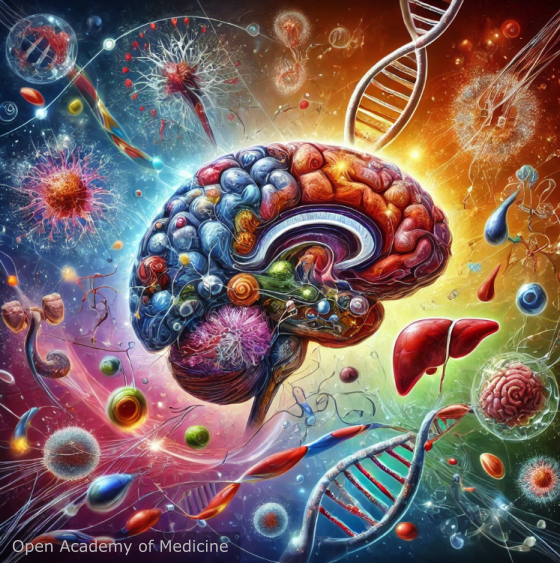Psycho-Neuro-Endocrino-Immunology (PNEI)
- What is PNEI?
- Systems involved
- In-depth knowledge on PNEI
- References
What is PNEI?
PsychoNeuroEndocrinoImmunology (PNEI) or PsychoNeuroImmunology (PNI) or PsychoNeuroEndocrinology (PNE) or NeuroEndocrinoImmunology (NEI) is a scientific discipline that studies the interactions between the psychological, neurological, endocrine, and immune systems of the human body. This multidisciplinary field is based on the idea that the mind and body are closely interconnected and that a person's well-being depends on the balance and interaction between these systems.Systems involved
Here is a detailed description of each system involved:- Psychological System: This involves the mind, emotions, behaviors, and cognitive processes. Psychological states such as stress, anxiety, and depression can influence physical health.
- Neurological System: This includes the brain, spinal cord, and peripheral nerves. The nervous system controls and coordinates all bodily functions and is involved in pain perception, motor control, and emotional responses.
- Endocrine System: This is composed of glands that secrete hormones into the bloodstream. Hormones regulate numerous bodily functions, including metabolism, growth, reproduction, and stress response.
- Immune System: This defends the body against infections and diseases. It includes a vast network of cells and molecules that identify and neutralize pathogens such as bacteria, viruses, and cancer cells.
In-depth knowledge on PNEI
PNEI explores how psychological stress and emotions can influence the immune and endocrine systems, and vice versa. For example, it is known that chronic stress can weaken the immune system, making a person more susceptible to illnesses. Similarly, a physical illness can affect a person's psychological state, creating a cycle of reciprocal interactions. This field of study is particularly relevant in the medical and therapeutic fields, as it provides a more integrated understanding of human health and can lead to more effective treatments that consider both the physical and psychological aspects of the patient.
To study and deepen your knowledge of PsychoNeuroEndocrinoImmunology (PNEI), there are
several academic and professional options, including a very interesting one in Italy with more than
12 years of high-level international training: the Open Academy of Medicine.


References
Some relevant bibliographic references on PsychoNeuroEndocrinoimmunology (PNEI):- Ader, R., Felten, D. L., & Cohen, N. (Eds.). (2001). Psychoneuroimmunology (3rd ed.). Academic Press.
- Kemeny, M. E. (2007). "Psychological influences on immune function: Implications for health." Nature Reviews Immunology, 7(3), 274-285.
- Glaser, R., & Kiecolt-Glaser, J. K. (2005). "Stress-induced immune dysfunction: Implications for health." Nature Reviews Immunology, 5(3), 243-251.
- Besedovsky, H. O., & del Rey, A. (2011). "Central and peripheral cytokines mediate immune-brain connectivity." Neurochemical Research, 36(1), 1-6.
- Sternberg, E. M. (2001). The Balance Within: The Science Connecting Health and Emotions. W.H. Freeman.
